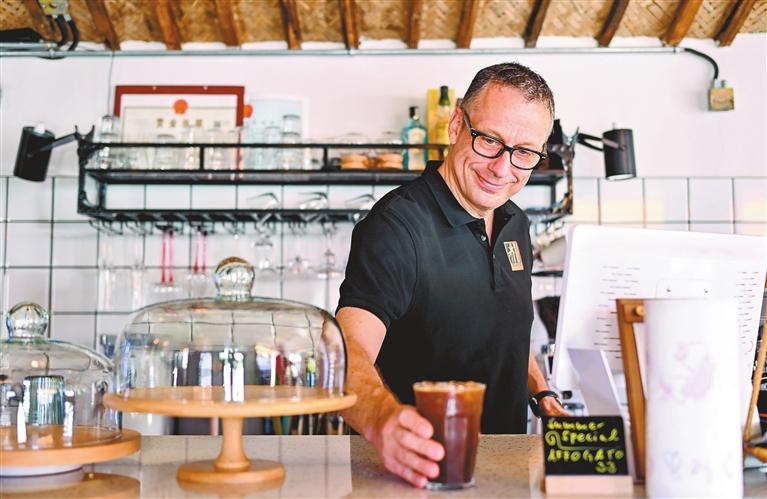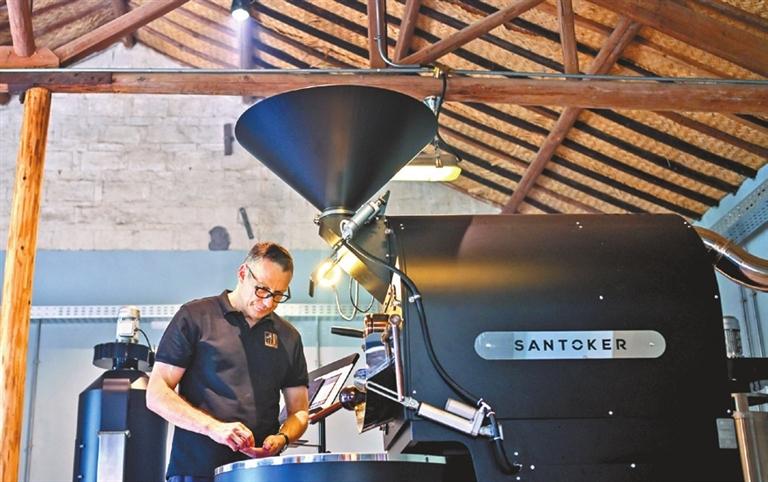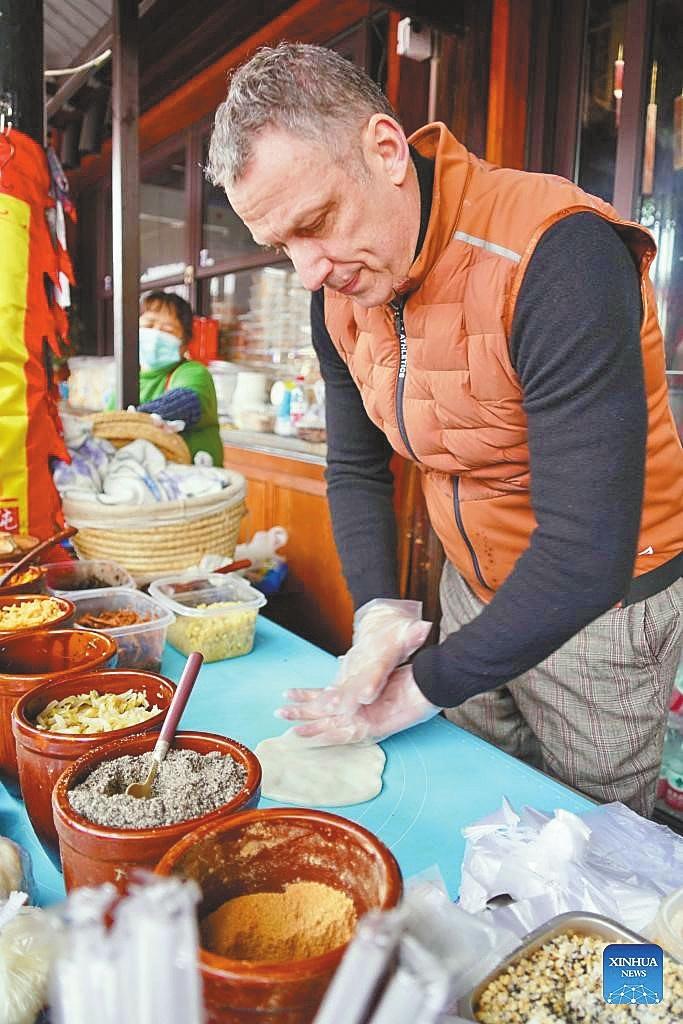



THE rich aroma of freshly roasted coffee filled the air inside a quaint stone cabin in a village in eastern China, which houses German barista Frank Sterzer’s café named Bamboo Coffee Roasters. After more than 20 years as an engineer and executive with leading automobile companies in Germany and China, Sterzer has found a new calling and fulfillment in the village of Maoli near the city of Ningbo in Zhejiang Province. Inspired by a lifelong love for coffee, his passion for roasting beans prompted Sterzer to transform a hobby into a thriving business. “Zhejiang’s countryside offers excellent infrastructure and beautiful landscapes, and I find it the ideal place to live,” Sterzer said. Maoli is located less than a 30-minute drive from the Ningbo city center, thereby striking a pleasing balance between urban convenience and rural tranquility. For Sterzer, the experience of sipping a cup of coffee while enjoying a slice of homemade cake and gazing at the serene countryside captures the type of lifestyle he hopes to share with visitors. “Bamboo Coffee Roasters is a platform for sharing the unique charm of this mountain village with visitors from all over,” he explained. The cafe is named after the bamboo that grows abundantly in Maoli, and its logo was inspired by a photograph Sterzer took of a local bamboo forest. He has also created a small “coffee factory” behind the shopfront, featuring neatly stacked premium beans from around the world and the hum of roasting machines. With an annual production capacity of 10 tonnes, this operation has become a key component of the café’s success. Sterzer first came to China in late 2006 to serve as an engineer for BMW in Shenyang, capital city of northeast China’s Liaoning Province. Over the years, he also worked in cities such as Chengdu, Shanghai, and Beijing. However, during a 2021 visit to Maoli, Sterzer fell in love with this village’s idyllic setting and decided to open a café there. The café is housed in a building near the village entrance which once served as a warehouse. Sterzer spent a year renovating the building, managing to carefully maintain its rustic charm while integrating modern coffee-roasting equipment. “I also received strong support from both my family and the local village council,” he said, noting that the village council offered rent reductions and upgraded the surrounding infrastructure, including reorganizing power lines. Since opening in June 2024, Bamboo Coffee Roasters has quickly become a popular destination, attracting visitors from near and far — including international travelers. During holidays, the café is welcoming guests from all over, including nearby cities like Hangzhou and Shanghai. “We came to Ningbo for local delicacies like tangyuan, a type of glutinous rice dumpling, and a form of rice cake known as niangao, but we also wanted to visit this coffee shop recommended widely on social media,” said a tourist surnamed Wang, who drove to Maoli from Shanghai. Notably, local residents have observed a positive impact since this café’s opening. Neighboring shops report increased business, with visitors frequently purchasing the likes of snacks, beverages, and locally grown produce. Products such as honey oranges, bamboo shoots ,and tea have found wider markets, thanks to the café’s popularity. As rural areas undergo rapid development driven by China’s rural revitalization efforts, more people from home and across the globe have chosen to move to the country’s rural areas. Meanwhile, ever faster development and modernization of rural areas have combined to prompt a change in the composition of rural populations, with more young people and even foreigners choosing to settle in such places. Having lived in China for over 18 years, Sterzer is embracing the countryside life in China. “I want more people to experience the charm of Chinese villages through my coffee business,” Sterzer said.(Xinhua) | 
